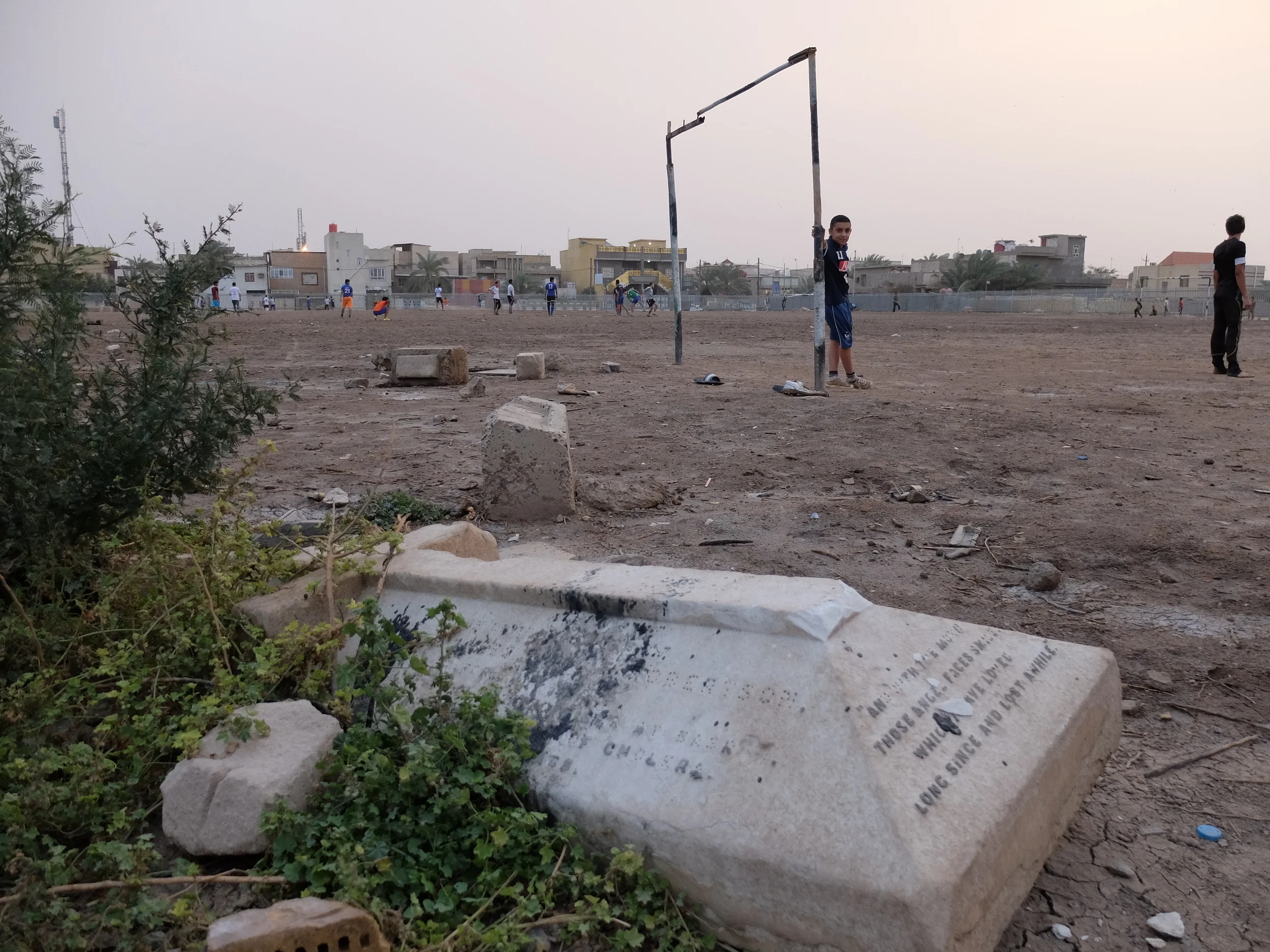British Cemeteries Left to Crumble in Iraq / The Times
“Their name liveth for evermore,” the engraving reads, but the words ring hollow. The stone they appear on lies shattered in a foreign field that should be for ever England but patently is not.
More than 4,600 soldiers killed in Iraq during World War One, three of them Victoria Cross winners, are buried in the Commonwealth War Cemetery in the southern city of Amara, but you would never know it. A century after they died for their country, their resting place is an unsightly expanse of mud, weeds and uncut grass the size of four or five football pitches.
The smashed remains of the traditional Cross of Sacrifice are piled in the middle. Plaques naming the dead have fallen off the commemorative wall. The headstones were mostly removed in the 1930s because they were crumbling in the saline soil, but the gravemarkers, gatehouse, date palms and many of the perimeter railings have all disappeared. One side is lined by an unofficial rubbish tip.
Still, this cemetery has fared better than the adjacent cemetery for 5,000 Indian soldiers who died beside their British counterparts. That has been commandeered by the Maysan Funfair, with its merry-go-rounds and giant Ferris wheel, and by the construction company that built it.
It has also fared better than the British and Indian war cemeteries in Basra, 100 miles further south. The former really has become four or five football pitches, replete with goal posts. Hordes of boys now play, quite literally, on the graves of 2,906 British soldiers including one VC winner. Once a haven of peace and manicured beauty treasured by local people, there is now not a blade of grass nor any trees left – just mud, rubbish, foetid puddles and, in one corner, the remnants of some civilian graves.
In 2013 the Commonwealth War Graves Commission spent £200,000 on renovations that included new metal palisade fencing, but in vain. The youths simply walk in through the unlocked gate, while three crude breezeblock houses have appeared in the adjacent Indian cemetery. “No-one has asked me to leave,” one squatter said. Another has erected a satellite dish on a dilapidated memorial to the Indian Pioneer Corps.
“It's a disgrace,” declared one recent British visitor, who declined to be named. “It used to be one of the most beautiful places in Basra,” Ali Muthanna, Iraq manager of the British charity AMAR, lamented. Barbara Heyburn from Ashford, Kent, whose grandfather lies the Amara cemetery, expressed distress. “Those soldiers didn't choose to go to war. They were told to. They ended up losing their lives and nobody remembers them.”
Baroness Nicholson of Winterbourne, founder of AMAR and the Commission's honorary Iraq commissioner, says that when Islamic militias were fighting British troops in Basra in 2006 “an armed gang of men assaulted the cemetery and destroyed all headstones, shrubs, flowers and paths” in an act of “wanton and meaningless wrecking”.
She describes the funfair's encroachment on Amara's cemetery as “a greedy and violent land grab” by Ali Dwai, the provincial governor who belongs to the virulently anti-western Sadrist movement. “It's atrocious he should take such un-Islamic actions as desecrating graves. It's wrong morally, legally and on religious grounds.”
Hassan Haytef Mosa, 57, who says he has been Amara's caretaker since 1977 and lives on site, said the Cross of Sacrifice was mysteriously blown up one night in 2006. “I'm living in a jungle of lions with no protection,” he complained.
The British cemeteries were undoubtedly treated with far greater respect by Saddam Hussein's regime, but locals said that in today's relatively lawless Iraq empty urban spaces would be inevitably commandeered if not protected. They noted that a British charity is presently restoring Basra's museum, and accused the Commission of neglect.
The Basra cemeteries have no caretaker. Mosa, whose father tended the Amara cemetery before him, said he had not been paid since 1991 despite support from Baroness Nicholson and praise for his dedication from Lt Col Tim Collins, the Royal Irish Regiment's commanding officer, following the US-led invasion of 2003.
The Commission denied having ever employed Mosa, but since being contacted by The Times this week it has decided to appoint a caretaker in Basra and an honorary supervisor in Amara. It said it had been largely unable to work in Iraq since the 1991 Gulf War due to the security situation, but had raised the plight of the Basra and Amara cemeteries with several senior Iraqi officials.
“We would like to reassure the public that we have not forgotten or abandoned the cemeteries in Iraq and as the situation permits, we will restore them to a standard befitting the sacrifice of those buried and commemorated there.”
